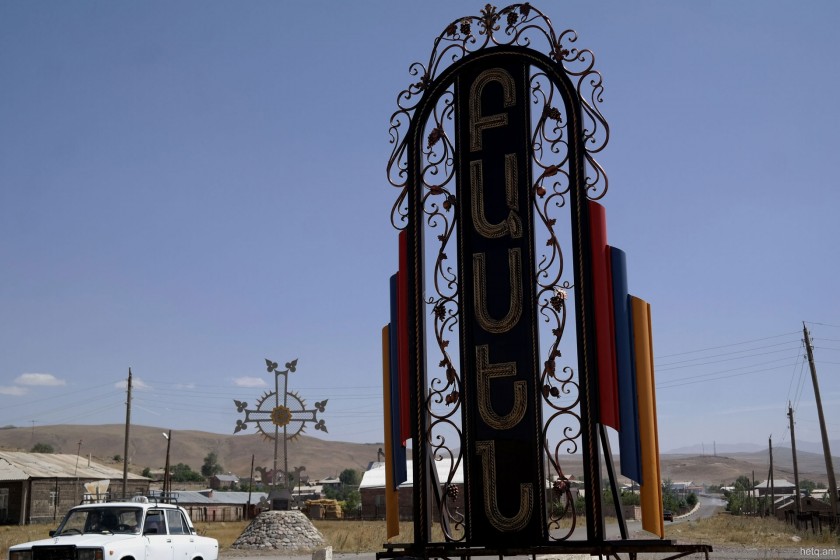
Manure Power: Biogas Production Introduced in Armenia’s Basen Village
Yeranuhi Soghoyan
Basen is a village in Armenia’s Shirak province. It’s been entitled a “Green Village” since 2013, with the introduction of renewable energy and new agricultural technologies there. The village’s kindergarten, with an enrollment of sixty, has served as an experimental unit.
The first solar and air water heaters, a dryer for fruits and plants were installed in the area of the kindergarten. A greenhouse was built at the same place to provide children with ecologically clean vegetables and greens. When testing the pellets (fuel from biological waste) project, the Basen Community Development Foundation had to purchase the first stove from abroad. All of these projects were implemented in Basen with the support of the European Union, Austrian Development Agency, Hilfswerk Austria International, the United Nations Global Ecological Fund and Biosophia environmental NGO.
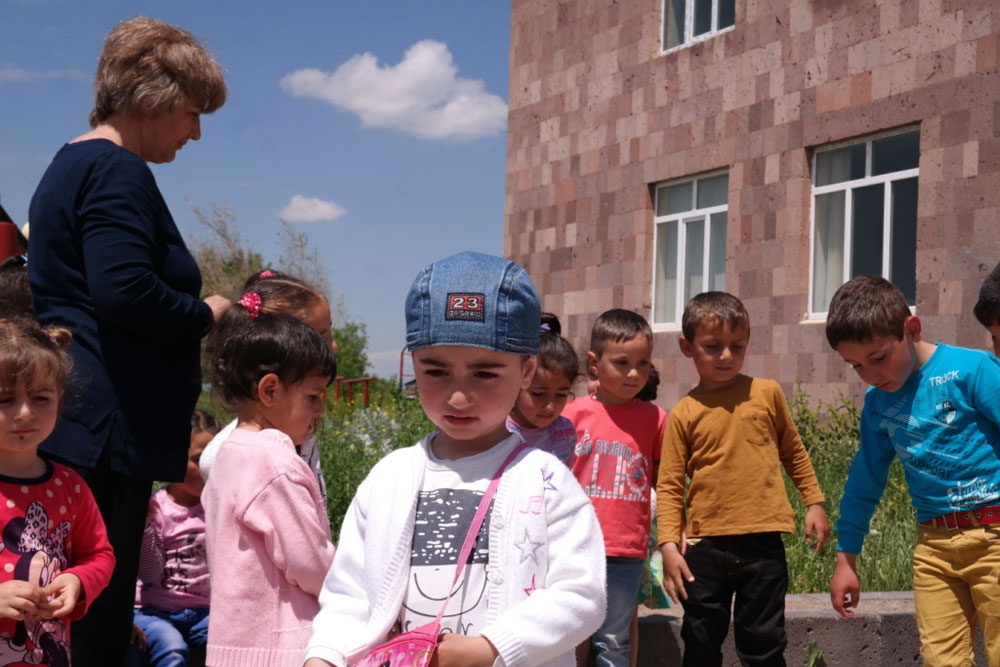
The biogas project is the next in the chain, and it will serve the kindergarten’s needs. Basen has been provided 3,300 euros for it, and 1,000 euros have been invested by the community. The work began in autumn last year, but it was impossible for a trial run in winter.
"As it works on the basis of manure, we needed a warm environment. We waited until it got warmer. The process of oxidation should take place in natural conditions. We needed equipment, and even at the moment, the automation system is not yet installed. We'll complete it in a week and start working in full,” says Basen Mayor Hamlet Petrosyan.
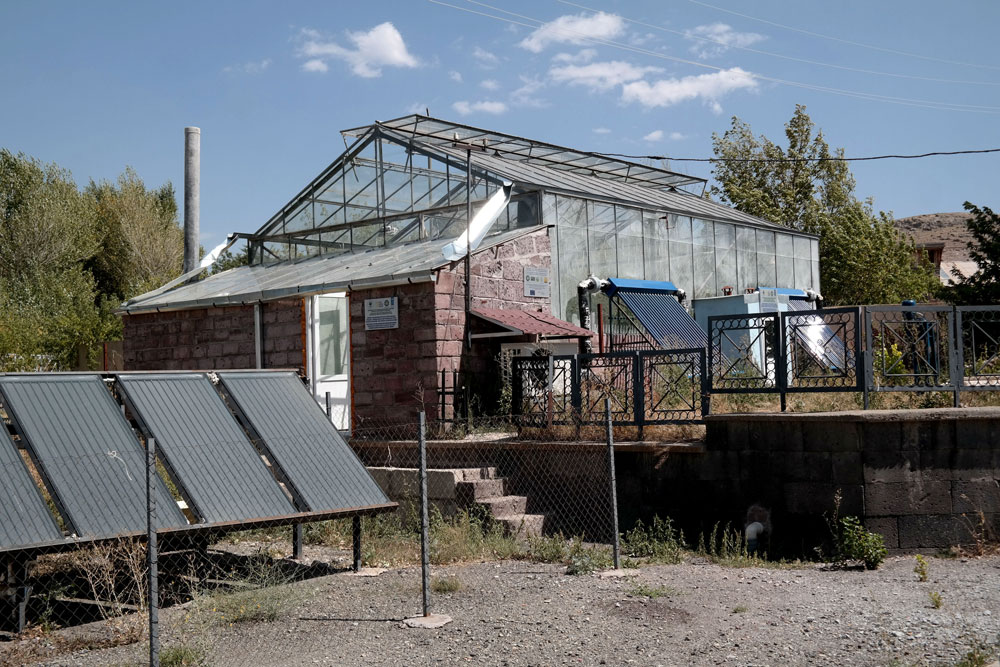
Of the 460 families in Basen, 80 already use solar water heaters. 15 heaters were put in Hovit, 12 - in Karnout, that are neighbor communities. Another two greenhouses were built in Basen, inspired by the example of the kindergarten's greenhouse. After the first experiments on alternative fuels - pellets - some families decided to test its effectiveness and warm up with biofuel in the winter, putting aside the traditional wood and dung.
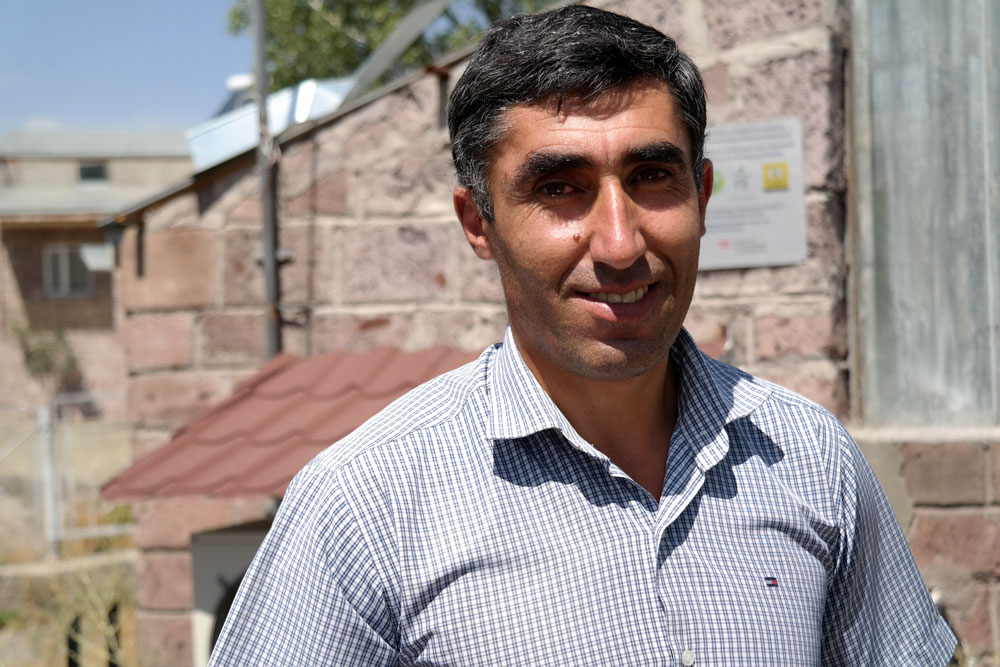
"All the renewable energy sources are applicable for non-gasified Basen. People's faith is very important here. That's why we needed a successful project, " says Basen community mayor Hamlet Petrosyan. “Last year, there was a high crop of wheat in the region. There was a lot of straw, too. If we had built the plant in the summer, it would have been possible to give at least a test product, and many would be able to turn the straw into biofuel. "
This year, they have many orders from the communities of Etchmiadzin, Artik and Maralik. There are more families in the village that will warm their houses with pellets in winter.
"Last winter, there were eleven families in Basen using pellets, and six families out of the community. We’ve rejected many orders because the workshop capacity is not great, productivity is low. We worked all day long, but produced only 400-500 kilograms of pellets, " Petrosyan says and adds that in early August, an outgoing session was held in Basen, headed by the Deputy Minister of Energy, where they discussed the necessity to strengthen the "green" energy carriers, as well as the pellets workshop.
"There was a proposal to create a one-ton capacity workshop. The equipment would cost sixty thousand dollars. Transportation, mounting and installation work would require $200,000 investment. Now we are negotiating and trying to buy that plant by December-January. The government will provide a loan with a lower interest rate and a long-term redemption period," mayor says.
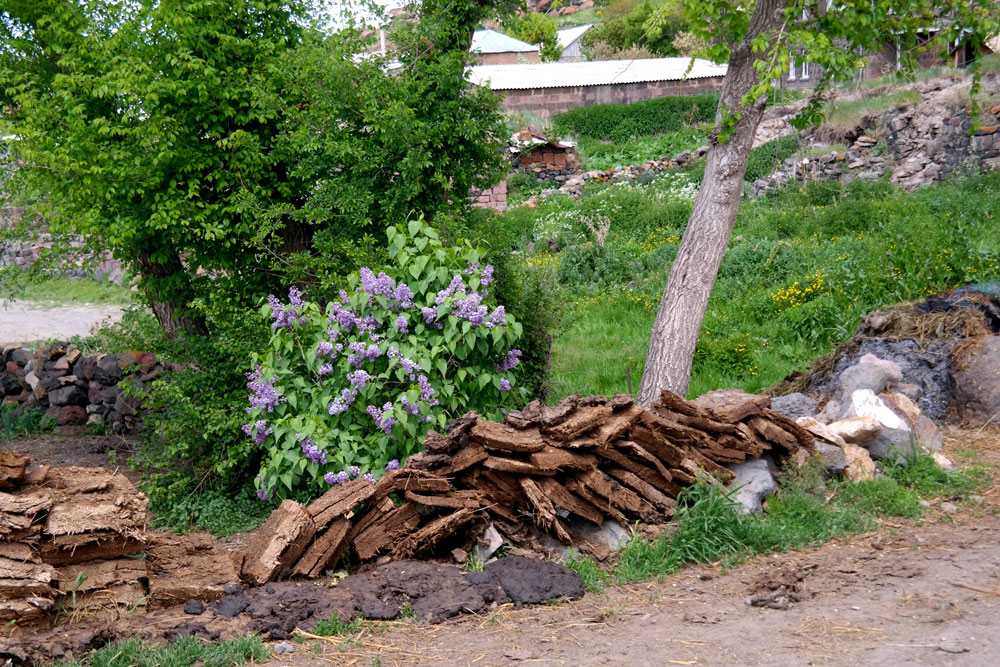
The effectiveness of the project has already been confirmed. They also plan to produce bricks and special stoves for biofuel. "We will have 5-6 stable jobs with stable wages - engineers, security specialists with stove expertise, and more. We’ll put an accent on cheaper, quality and competitive products, " the mayor assures.
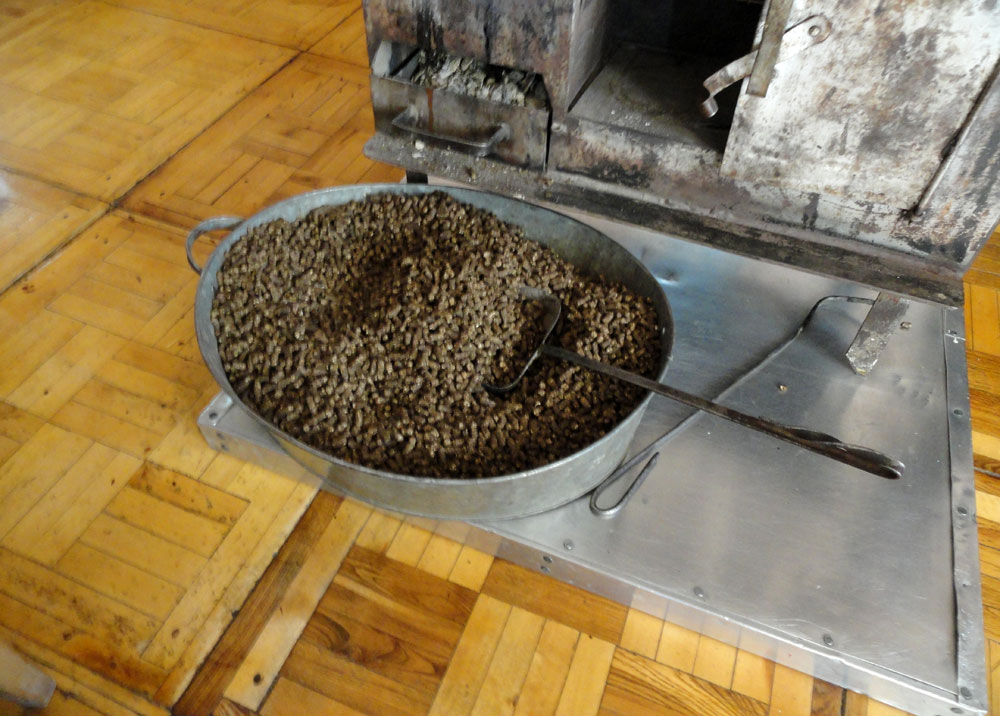
Biosophia NGO President Gevorg Petrosyan, referring to the biogas project, notes that it allows the Basen Municipality to keep the kindergarten open during the winter months. "Using pellets for heating has the same goal, now biogas will be added. The kindergarten students can attend it only for 7 months. Heating by electricity in winter is very expensive, and the municipality cannot afford it. Now, when the cost of electricity is minimized by several projects (150,000 drams a month), it’s possible to maintain the kindergarten all the year, pay wages, etc. "
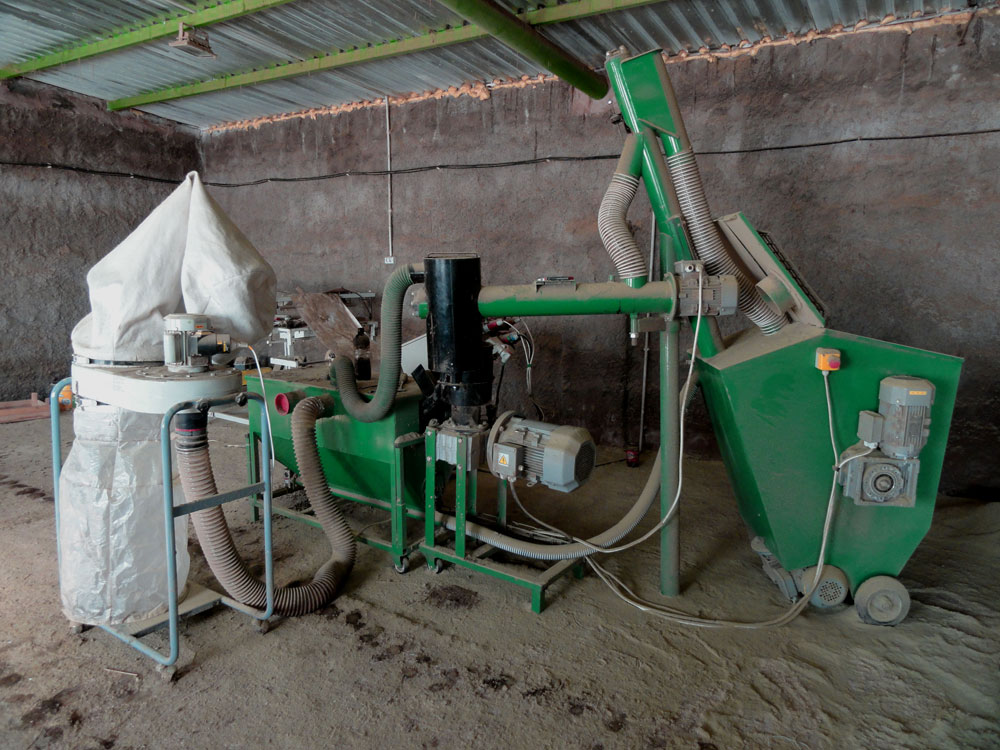
The environmentalist believes that biogas will contribute to the solution of economic and social problems in rural communities. Villagers will no longer have to spend time on getting fuel from manure, it will reduce methane and carbon dioxide emissions, contributing to the prevention of climate change. In addition, villagers will get an extra benefit from this process - organic fertilizers.
"When we plan a project in any community, we consistently check not only the outcome, but also the future fate of that investment. Why is Basen considered exemplary? First, it’s the public mindset of the community mayor who wants prosperous life for the villagers. The other advantage is this community’s and its leader’s desire to spread the performed work not only in their own village, but also in the neighborhood.”
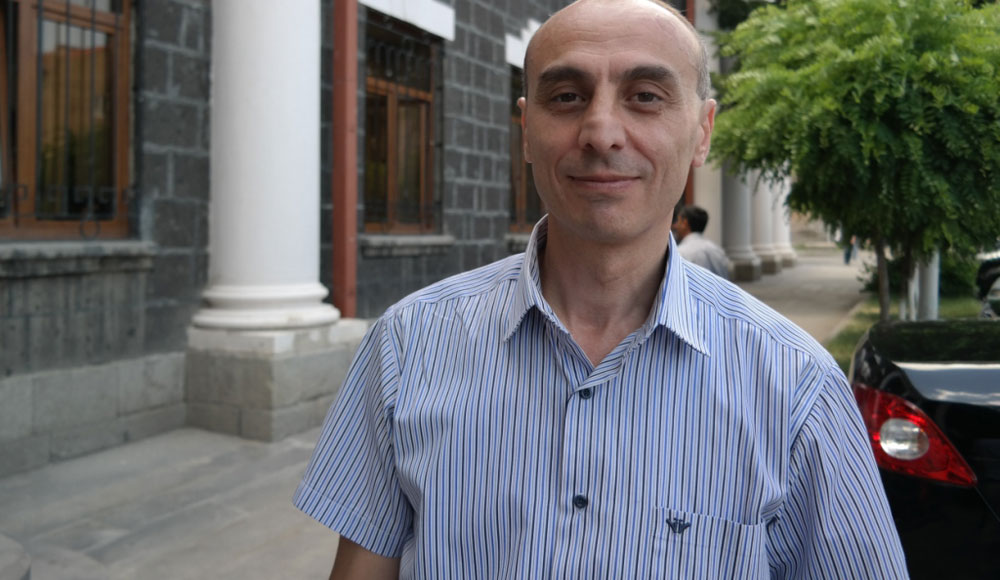
Talking about the future plans, the Basen mayor says they want to use the wind power to gain energy. And, perhaps, the next investment project will aim at it.
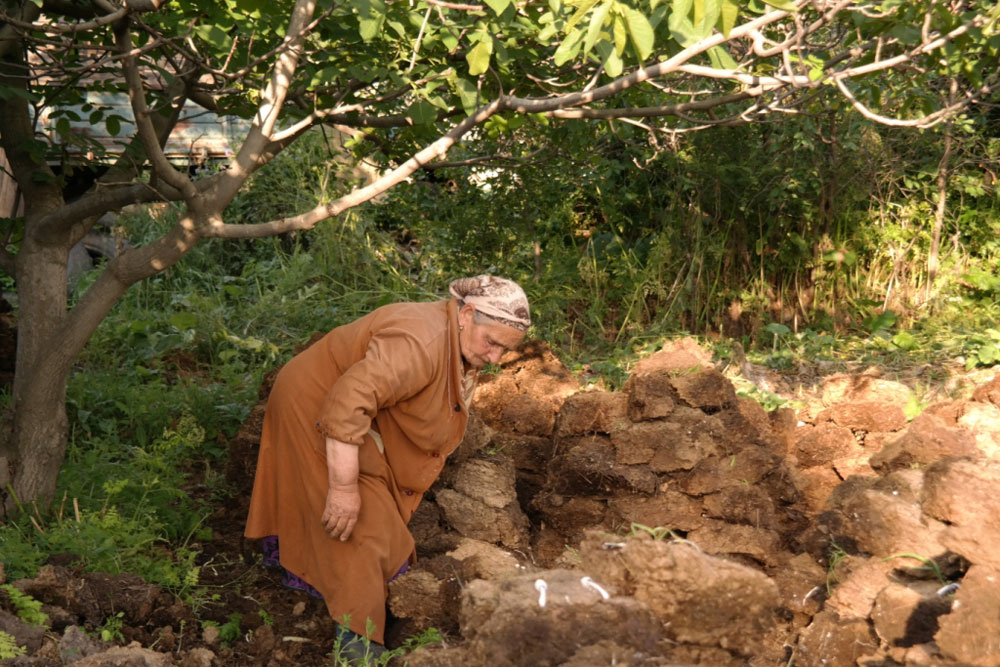
"In Basen, it’s windy 20 hours a day. If we start using winds, we will completely close the environmental chain. We use renewable energy, given by nature, thanks to which we are saving energy and solving environmental issues. We use nature by not harming the environment. This is called wasteless management. “concludes the mayor.
 Videos
Videos Photos
Photos
Write a comment